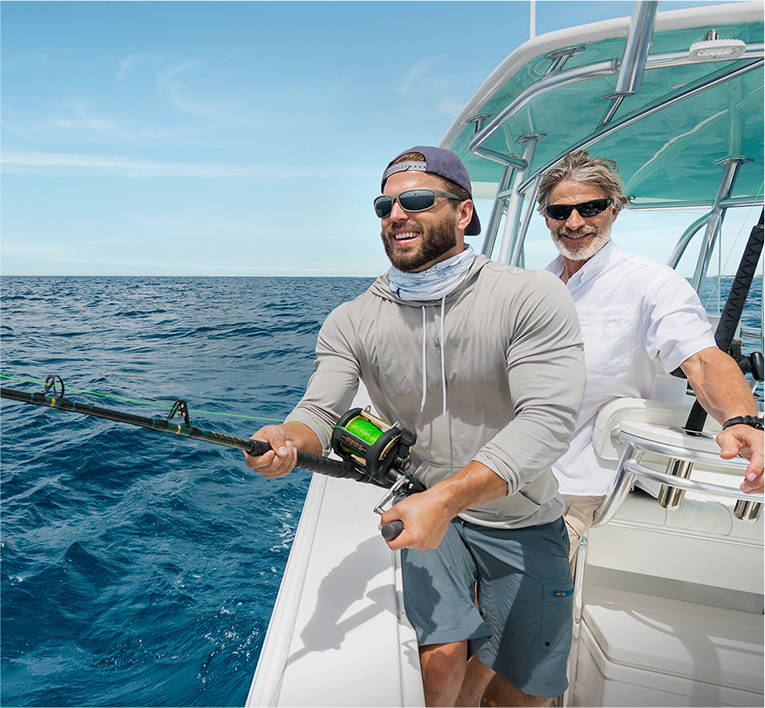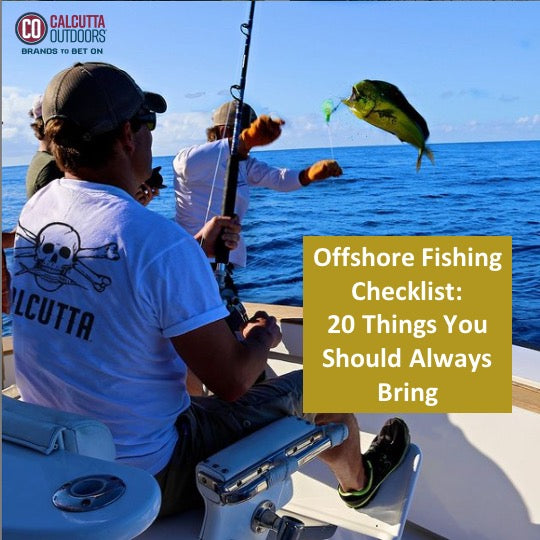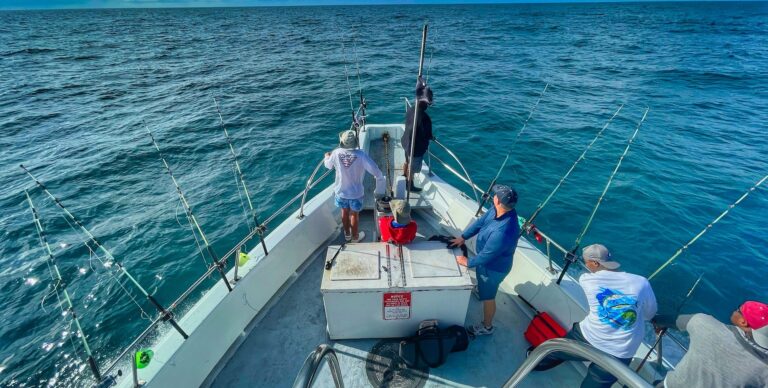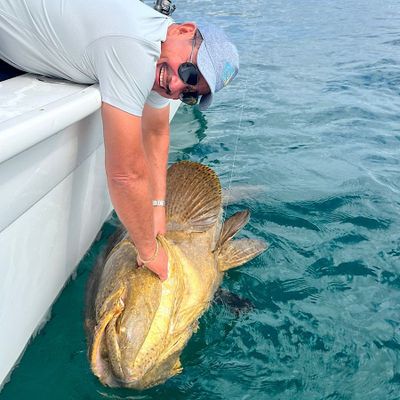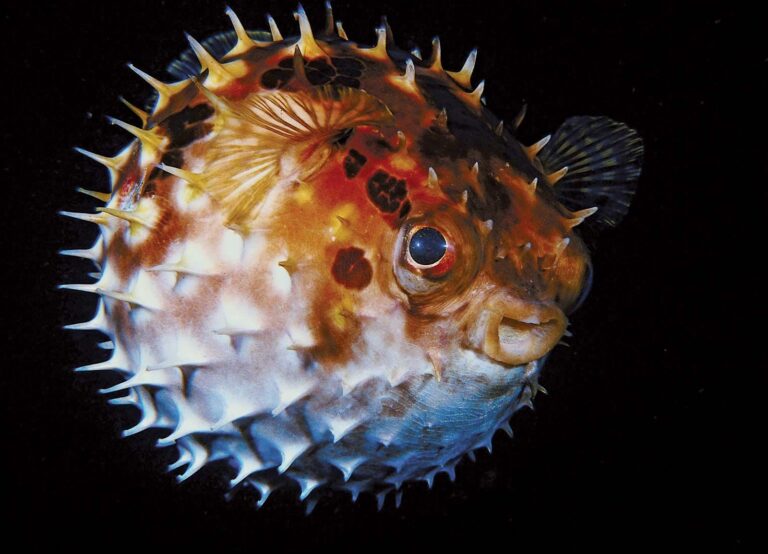Deep sea fishing can make you sick due to the motion of the boat and the rough sea conditions. However, there are ways to minimize or prevent seasickness during deep sea fishing trips.
Many people experience seasickness when engaging in deep sea fishing activities, and symptoms include nausea, dizziness, and vomiting. It is believed that the rocking motion of the boat, combined with the unpredictable nature of the ocean waves, can trigger motion sickness.
Although seasickness can be unpleasant, there are various remedies and preventive measures that can help alleviate the symptoms and enable individuals to enjoy their deep sea fishing experience without feeling sick.

Credit: www.nationalgeographic.com
The Dangers Of Deep Sea Fishing
Deep sea fishing is an exhilarating and adrenaline-packed activity that many adventure enthusiasts love to try. However, like any adventure sport, deep sea fishing poses its own set of challenges and risks. One such risk is the potential for motion sickness, which can turn a thrilling experience into a nauseating one.
In this section, we will explore the dangers of deep sea fishing and delve into the causes and symptoms of motion sickness while out on the open waters.
Motion Sickness: Understanding The Link
Motion sickness is a condition that results from a disconnect between what you see and what your body senses in terms of motion. When your brain receives conflicting signals, it can trigger symptoms like nausea, dizziness, and vomiting. Here’s what you need to know about motion sickness during deep sea fishing:
Causes And Symptoms Of Motion Sickness While Deep Sea Fishing
- Boat movement: The constant rocking, swaying, and pitching of the boat can disturb your body’s balance system, causing motion sickness.
- Changes in position: Moving around the boat, leaning over the railings, or standing in different positions can further exacerbate the symptoms of motion sickness.
- Odors and fumes: The scent of fish, fuel, or even sunscreen on a boat can trigger nausea in some individuals.
- Visual cues: Watching the horizon or focusing on a stationary point in the distance can help align your senses, reducing the chances of motion sickness.
- Pre-existing conditions: Individuals prone to migraines, anxiety, or other conditions that affect the inner ear or balance may be more susceptible to motion sickness.
- Symptoms: Common symptoms of motion sickness while deep sea fishing include dizziness, queasiness, sweating, headaches, and a general feeling of discomfort.
Understanding the causes and symptoms of motion sickness while deep sea fishing can help you be better prepared and mitigate its impact. Whether you’re a seasoned angler or a first-timer, arming yourself with this knowledge can make a significant difference in your deep sea fishing experience.
So, be sure to take note of these factors and take necessary precautions before embarking on your next deep sea fishing adventure.
Prevention And Remedies For Motion Sickness
Does Deep Sea Fishing Make You Sick
Deep sea fishing is an exhilarating experience that allows you to test your angling skills and reel in some impressive catches. However, for some individuals, the adventure can come with an unwelcome side effect—motion sickness. The constant swaying of the boat on the open seas can trigger symptoms like nausea, dizziness, and even vomiting.
If you’re prone to motion sickness or are considering going deep sea fishing, it’s essential to be prepared. In this section, we’ll discuss prevention and remedies for motion sickness to ensure you have an enjoyable and sickness-free fishing trip.
Natural Remedies For Motion Sickness
Here are some natural remedies that can help alleviate or prevent motion sickness:
- Ginger: This natural root has long been used to calm an upset stomach and is known for its anti-nausea properties. Consider taking ginger supplements or chewing on crystallized ginger before your fishing trip.
- Peppermint: Peppermint has a soothing effect on the stomach and can help reduce nausea. Sipping on peppermint tea or sucking on peppermint candies may provide relief.
- Acupressure wristbands: These wristbands apply pressure on specific points on your wrists to help alleviate nausea. They are a popular choice for individuals prone to motion sickness and can be easily obtained from the local pharmacy or online.
Over-The-Counter Medications For Motion Sickness
If natural remedies don’t provide the desired relief, over-the-counter medications can be an effective option. Here are some commonly used medications for motion sickness:
- Dimenhydrinate (e.g., dramamine): This medication helps prevent motion sickness by blocking the signals in the brain responsible for triggering nausea.
- Meclizine (e.g., bonine, antivert): Meclizine is an antihistamine that works by reducing the activity in the brain that causes dizziness and nausea.
- Scopolamine patches: These patches are worn behind the ear and slowly release scopolamine, a medication that helps prevent motion sickness. They provide continuous relief for up to three days.
Lifestyle Changes To Prevent Motion Sickness
In addition to natural remedies and medications, there are some lifestyle changes you can implement to prevent motion sickness. Consider the following tips:
- Choose the right spot on the boat: If possible, sit near the center of the boat, where there is less rocking motion.
- Focus on the horizon: Looking at a fixed point on the horizon can help stabilize your inner equilibrium and reduce the chances of experiencing motion sickness.
- Avoid reading or staring at screens: Activities that require intense focus on close-up objects, like reading or watching movies, can exacerbate motion sickness. Try to keep your focus on the surroundings instead.
- Stay hydrated: Dehydration can worsen motion sickness symptoms. Drink plenty of water before and during your deep-sea fishing trip to stay hydrated.
By incorporating these prevention and remedy strategies, you can minimize the chances of experiencing motion sickness during your deep sea fishing adventure. Remember to consult with your healthcare provider before trying any new remedies or medications, especially if you have preexisting medical conditions or take other medications.
Stay prepared, stay informed, and have a fantastic time reeling in those big catches!
Deep Sea Fishing Safety Measures
Deep sea fishing can be an exhilarating activity for those seeking adventure and the thrill of reeling in big catches from the depths of the ocean. However, it is important to prioritize safety when participating in this sport to ensure a positive and enjoyable experience.
Here are some essential safety equipment and precautions to take into consideration, as well as the significance of having experienced guides and crew members by your side.
Safety Equipment And Precautions For Deep Sea Fishing
When embarking on a deep sea fishing trip, it is vital to have the appropriate safety equipment and follow necessary precautions. These measures will help to minimize risks and ensure a safe outing. Consider the following:
- Life jackets: Always wear a properly fitted life jacket, especially if you are not a confident swimmer. Accidents can happen, and a life jacket can be a lifesaver.
- Safety briefing: Listen attentively to the safety briefing provided by the captain or crew. It will cover important details regarding emergency procedures, vessel layout, and equipment location.
- First aid kit: Carry a well-stocked first aid kit on board to handle minor cuts, scrapes, or motion sickness. This will help address immediate medical needs until further medical assistance can be sought.
- Weather monitoring: Stay informed about weather conditions before and during your trip. In case of inclement weather, the captain may postpone or cancel the trip for safety reasons.
- Proper clothing: Dress appropriately for the trip, wearing items such as non-slip shoes, hats, sunglasses, and sunscreen. Dependent on the season and location, bring additional layers or rain gear to stay comfortable.
- Hydration and snacks: Pack enough water and snacks to stay hydrated and energized throughout the trip. Deep sea fishing can be strenuous, so maintaining hydration levels is crucial for your well-being.
Importance Of Experienced Guides And Crew Members
Having experienced guides and crew members on board is paramount for a safe deep sea fishing experience. Their expertise and presence contribute to a relaxed and secure outing. Here’s why they are crucial:
- Vessel handling: Skilled crew members possess knowledge and experience in handling the vessel, ensuring smooth navigation and avoiding potential hazards.
- Navigational expertise: Experienced guides are familiar with the waters, including potential obstacles and safe fishing spots. They can guide you to areas where you are likely to have successful catches, increasing your chances of an enjoyable trip.
- Emergency response: In case of any unforeseen circumstances, experienced crew members can efficiently respond to emergencies, ensuring the safety of everyone on board. Their presence provides a sense of security throughout the trip.
- Fish handling and techniques: Guides are knowledgeable about different fish species, their behaviors, and recommended handling techniques. They can advise on proper catch-and-release methods, as well as the legal limits and regulations for each type of fish.
By adhering to safety measures and having experienced guides and crew members accompanying you, your deep sea fishing adventure can be enjoyable and free from unnecessary risks. Remember, when it comes to deep sea fishing, safety should always be the top priority.
So, gear up, follow the precautions, and embark on an unforgettable fishing expedition with peace of mind.
Conclusion
Deep sea fishing can cause motion sickness in some individuals. The combination of the rocking motion of the boat and the smell of fish can lead to feelings of nausea and dizziness. However, there are several strategies that can help prevent or reduce the effects of motion sickness.
Taking medication, such as over-the-counter anti-nausea drugs, can be effective in alleviating symptoms. Additionally, choosing a larger, more stable boat and sitting in the middle of the vessel can help mitigate discomfort. It’s important to stay hydrated and avoid consuming greasy or heavy foods before the trip.
Overall, while there is a possibility of getting sick during deep sea fishing, with the proper precautions and awareness, it is a thrilling and enjoyable experience for many. So, don’t let the fear of motion sickness hold you back from experiencing the adventure of deep sea fishing.

